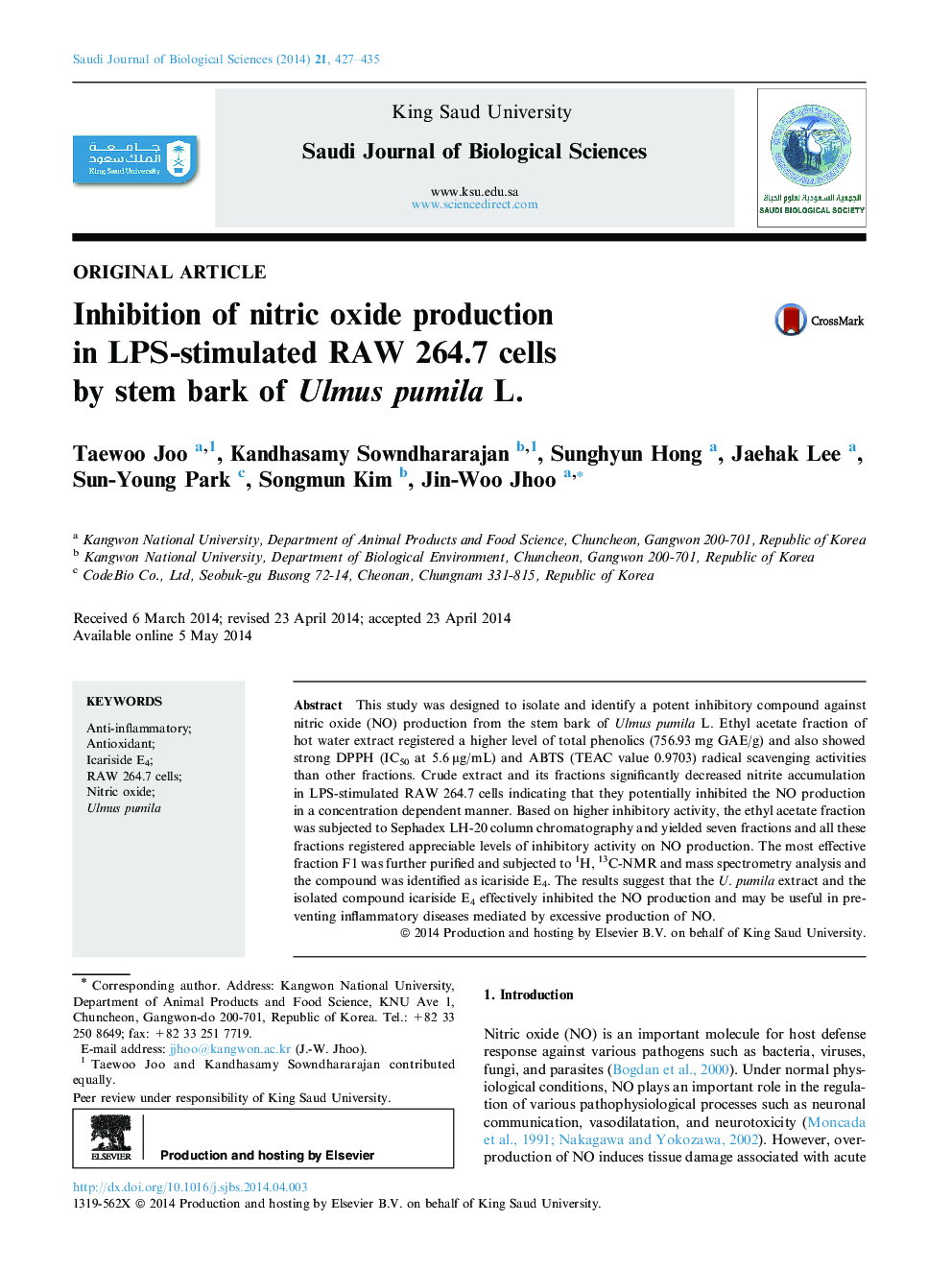| Article ID | Journal | Published Year | Pages | File Type |
|---|---|---|---|---|
| 4406194 | Saudi Journal of Biological Sciences | 2014 | 9 Pages |
This study was designed to isolate and identify a potent inhibitory compound against nitric oxide (NO) production from the stem bark of Ulmus pumila L. Ethyl acetate fraction of hot water extract registered a higher level of total phenolics (756.93 mg GAE/g) and also showed strong DPPH (IC50 at 5.6 μg/mL) and ABTS (TEAC value 0.9703) radical scavenging activities than other fractions. Crude extract and its fractions significantly decreased nitrite accumulation in LPS-stimulated RAW 264.7 cells indicating that they potentially inhibited the NO production in a concentration dependent manner. Based on higher inhibitory activity, the ethyl acetate fraction was subjected to Sephadex LH-20 column chromatography and yielded seven fractions and all these fractions registered appreciable levels of inhibitory activity on NO production. The most effective fraction F1 was further purified and subjected to 1H, 13C-NMR and mass spectrometry analysis and the compound was identified as icariside E4. The results suggest that the U. pumila extract and the isolated compound icariside E4 effectively inhibited the NO production and may be useful in preventing inflammatory diseases mediated by excessive production of NO.
